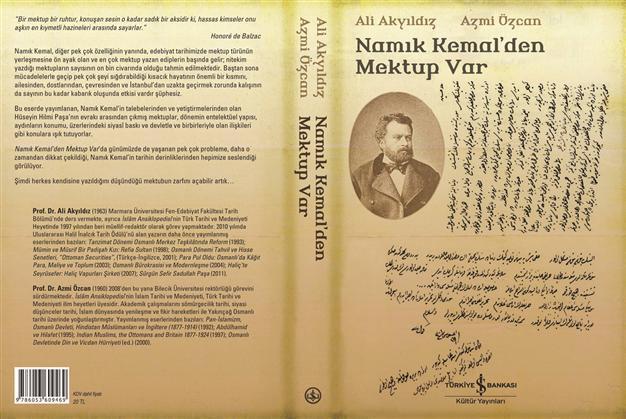Letters of Namık Kemal reveal history
ISTANBUL – Hürriyet Daily News

Namık Kemal has written more than 10,000 letters.
The letters of Namık Kemal, writer, intellectual, reformer, journalist, playwright, and political activist who was influential in the formation of the Young Ottomans and their struggle for governmental reform in the Ottoman Empire during the 19th century, were revealed with a new book. Even though he lived for 48 years, he has written more than 10 thousand letters and 147 of them are now collected in a book. The letters of Kemal have been collected by Turkish Islamic Foundation Center (İSAM) and become a book by Prof. Ali Akyıldız and Prof. Azmi Özcan. The letters are not only important historical evidence, but also important messages sent to the present from Namık Kemal.As Kemal was particularly significant for championing the notions of freedom and country in his numerous plays and poems, he always had a powerful impact on future reform movements, the letters show.
Letters reveal the country’s problems
The letters reveal the environment and what Kemal thought as a Turkish intellectual about his own country. While Kemal was never silent about the happenings in the country, the letters reveal that he has written to his friends a lot on the problems of the country and the era. Kemal’s letters also show his personality and how he approached people. Kemal never hesitated to criticize his friends and the letters have driven this to light.
The letters come to afore with his writing style, as the writer used very simple and plain language.
Kemal wrote to Hüseyin Hilmi Paşa and Aydın mayor Râşid Nâşid Paşa and talked about Turkey’s general situation and how the intellectuals are against the government, with many problems on this issue.
These letters prove that it is not only literature found in these letters, but also many important things, such as the political situation, economy and the government’s situation. The letters also give many examples about how intellectuals approach the government.
Letter 127 to Hüseyin Hilmi
In his letter to Hüseyin Hilmi Efendi, Kemal speaks about his situation and how he is bored. He writes that he is alone as his friend left him and went away. The letter from June 15, 1886 reveals the psychological situation and life of Kemal and how he has been alone throughout his whole life.
On the other hand, the letters tell a lot about the historical developments in 1880s and the Ottoman and Turkish identity. It is known that Namık Kemal had an enormous influence on the formation of a Turkish national identity and the letters show this. Kemal’s focus on national loyalty, rather than loyalty to a monarch, influenced, as it was, by Western European ideals of self-government, contributed not only to the spread of democracy during the early 20th century, but also the formation of the modern Republic of Turkey after the dissolution of the Ottoman Empire. It is also known that Atatürk often remarked that he had been influenced by Kemal’s writing as a young man and that they had subsequently been a source of inspiration for his goals in the formation of the Turkish government and state.
The Kemal’s letters give detailed information about the history of Turkey.
















